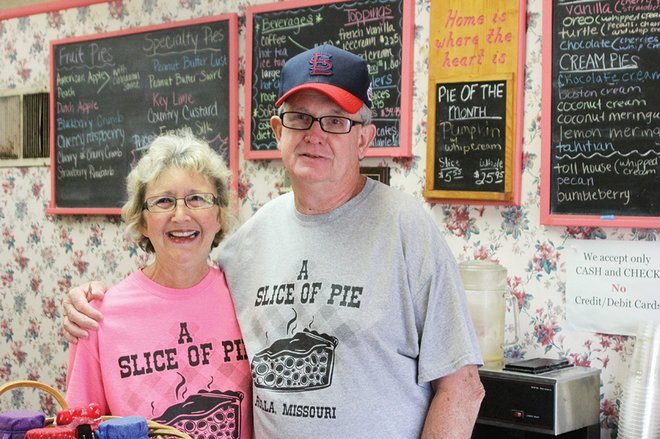There’s no need to head all the way down the Mississippi River to New Orleans when you can hit one of the nation’s largest Mardi Gras celebrations right here in the Show-Me State. St. Louis boasts its own rich history with the annual Soulard Mardi Gras, celebrating nearly four decades of letting the good times roll in the historic Soulard neighborhood of south St. Louis.
How did Soulard Mardi Gras come to be the enormous fête it is today? Let’s start by answering a question many folks have:
What exactly is Mardi Gras?
Literally “Fat Tuesday” in French, Mardi Gras is intertwined with the Lenten season traditions of the Roman Catholic Church and with the cities of New Orleans and Rio de Janeiro. It’s called Carnival in Rio. The Mardi Gras tradition in the United States began in 1703 with a celebration by French settlers in the city of Mobile, the first capital of colonial French Louisiana. When the colonial capital of Louisiana was moved to New Orleans in 1723, the Mardi Gras tradition moved along with it and has been synonymous with the city’s identity ever since.
Much like New Orleans, St. Louis has a strong French heritage. Pierre Laclède founded the city in 1763. The neighborhood of Soulard began as part of the estate of Antoine and Julia Soulard. Antoine, a loyalist to King Louis XVI, left France to save his head and ended up in St. Louis by way of New Orleans, marrying into the prominent Cerre family. Surprisingly, however, these French roots have little to do with the history of Soulard’s Mardi Gras celebration.
Soulard Mardi Gras began in December 1979 as a bit of a lark by five bored guys looking to inject some fun into the cold St. Louis winter. Hilary Clements, Bob Brinkmann, James Rabbitt, Bill Stubbs, and Bill Coleman gathered in a downtown pub to plan a big party to fight the winter doldrums. With Fat Tuesday just around the corner, Hilary suggested Mardi Gras as a great theme for their bash. Conveniently, he’d just purchased a gutted three-story building at 1017 Russell Boulevard in Soulard, which later became the popular establishment Hilary’s, now Johnny’s Restaurant & Bar.
Each founder kicked in $250 for a total budget of $1,250, and in February 1980, the group hosted Soulard’s first Mardi Gras at the Russell Boulevard location for about two hundred friends. At midnight, the revelers marched out into the street—ignoring the freezing temperatures—and headed up Russell Boulevard to John D. McGurk’s Irish Pub, a mini brass band of trombones and horns moving with them.
And thus, the Soulard Mardi Gras Grand Parade was born.
The good times grow
Thirty-eight years later, the celebration includes more than a month of events and is attended by approximately 750,000 people from all over the country. This year, Fat Tuesday occurs on February 28, the day before Ash Wednesday kicks off the Lenten season preceding Easter.
The St. Louis celebration started with Twelfth Night back on January 6 and will culminate the Saturday before Fat Tuesday on February 25.
If you’re considering coming to town for the month-long celebration, you might think about crashing with friends, as a census of downtown St. Louis hotels polled as far back as last November determined that more than 20,000 hotel room nights are already booked the weekend of the Grand Parade. The Regional Chamber and Growth Association estimates Mardi Gras’ economic impact across the St. Louis region at more than $21 million. Riverfront Times calls the celebration the second-largest Mardi Gras street party in the United States.
Soulard Mardi Gras has grown gradually in phases. “At first, it was just the Grand Parade,” says Mardi Gras Foundation President Mack Bradley. “What we’ve done over the years is focus on building a whole calendar of events between Twelfth Night—the beginning of the Epiphany season—and Fat Tuesday that has a little something to offer everyone. Some events are family-oriented, some are not so family-oriented, some are really large and not ticketed, and some are smaller ticketed events. A lot of them are outdoors, which can be a challenge in February.”
Far from its founding krewe, Soulard Mardi Gras has been produced by the local, not-for-profit Mardi Gras Incorporated since 1999. The organization’s only mission is to produce the various Mardi Gras events with revenue from sponsors, along with fees paid by participating Soulard establishments. In 2002, the Mardi Gras Foundation was also created to support the efforts of Mardi Gras Inc. by funding public safety and cleanup efforts related to the larger Mardi Gras events. The foundation has raised $450,000 through the annual Mayor’s Ball to provide community improvement grants, both in Soulard and in downtown St. Louis.
Organizers hope those who visit will show respect for the residents of Soulard and their property. But most of all, as they say, “Laissez les bons temps rouler!”
Related Posts
A Slice of Pie Celebrates 30 Years
According to Ron Hopson, the key to a good pie is the crust. Ron should know. He and his wife, Mickey, have been baking them at A Slice of Pie for more than thirty years.
Chasing the Ghosts of April
It seems I always hear the wild geese in April.












